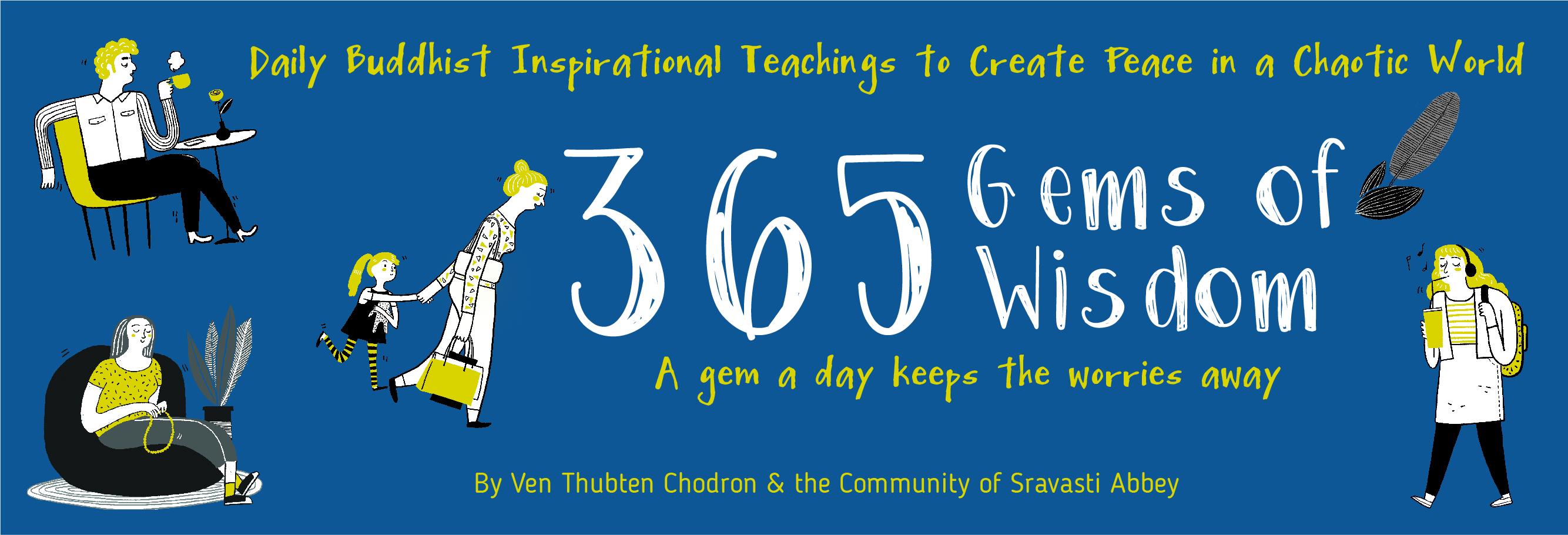February 8 : Combating Consumer Culture
Sensual pleasures are like saltwater: the more you indulge, the more thirst increases. Abandon at once those things which breed clinging attachment. This is the practice of Bodhisattvas.
Drinking saltwater to quench your thirst actually does the opposite and only makes you more thirsty. The same thing happens when our mind is filled with attachment and is thirsting for things outside itself. The more we indulge in the things we crave, the more our clinging and dissatisfaction increase because the happiness that worldly things provide is very brief. This is why many people in the United States, no matter how much they have, still suffer incredible dissatisfaction and discontent.
Consumer culture is like drinking saltwater because we always want more and better, more and better. The antidote to this situation is not giving up everything in life — and clearly, we cannot do without things like food, clothes, medicine and shelter — but rather giving up our attachment to them. We can still have friends and relationships, just healthier ones free of attachment. If our mind has not yet trained in other ways of relating to these things, it is going to be very difficult to abandon our attachment to them. For many people, attachment automatically arises when they see a chocolate cake, something beautiful in a store, or an attractive person. Distancing ourselves from these objects and developing a sense of caution around them will give us some space in which to retrain and subdue our mind so attachment cannot rear up and overwhelm us. As we do this, we realise that we can live very well without the things we thought we could not live without. In fact, our mind is more peaceful when it is free of the clinging, craving, worrying and fear that accompany things we are very attached to.
Freeing our mind from attachment is an essential Bodhisattva practice for many reasons. Samsara looks wonderful from the point of view of attachment, so we cannot generate the determination to be free from it if attachment is February | 61 in our mind. Attachment also interferes with our bodhicitta motivation, since having genuine love and compassion for the beings we are attached to is quite difficult. Similarly, it is difficult to meditate when the mind keeps flitting from one object of attachment to the next, which interferes with generating the wisdom that sees the actual nature of these objects. We cannot let go of clinging attachment all at once, but we can start by identifying what we are attached to most and start chipping away, feeling more peaceful as we do.
“365 Gems of Wisdom” First Volume (January — March) e-book is out now!

